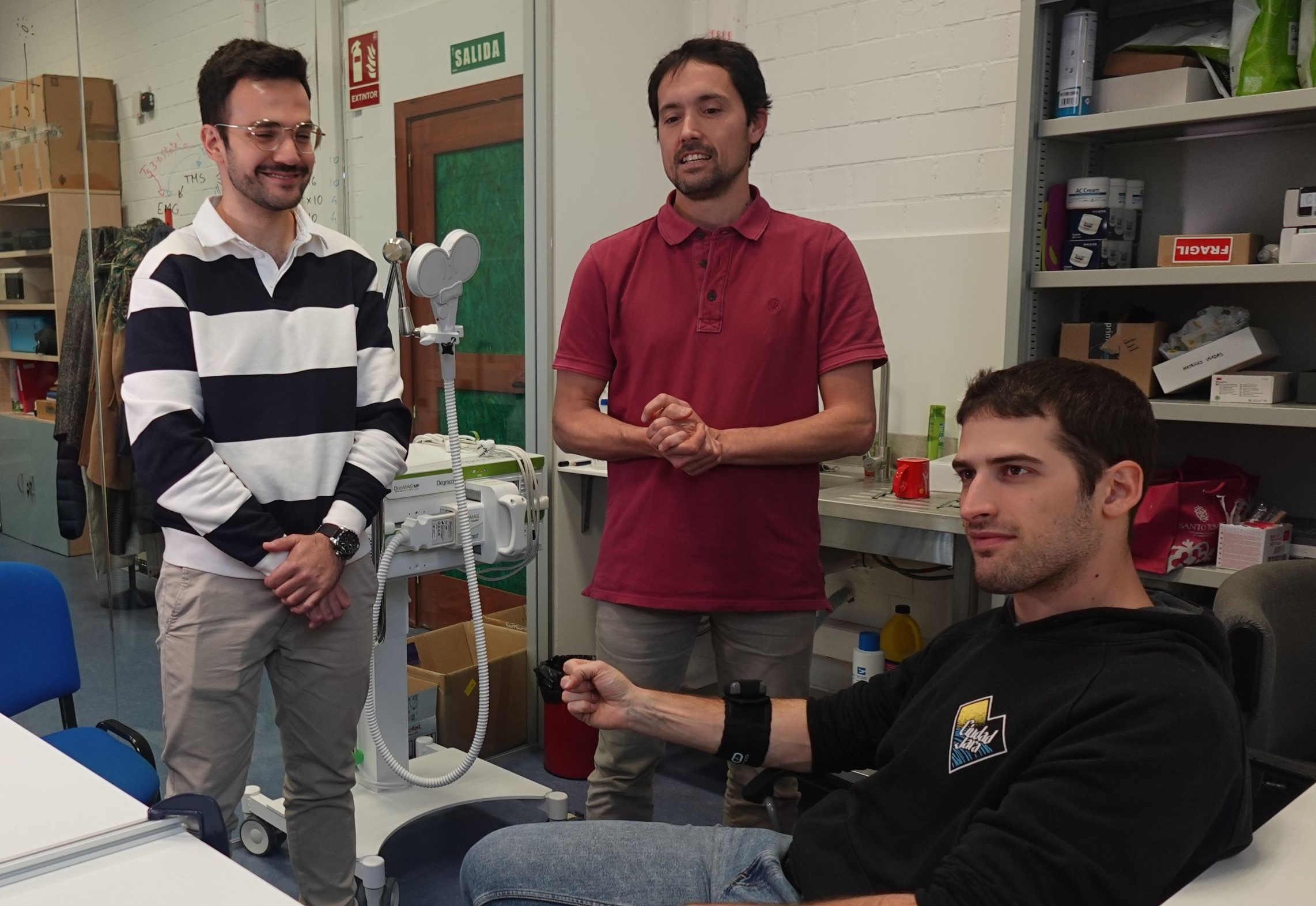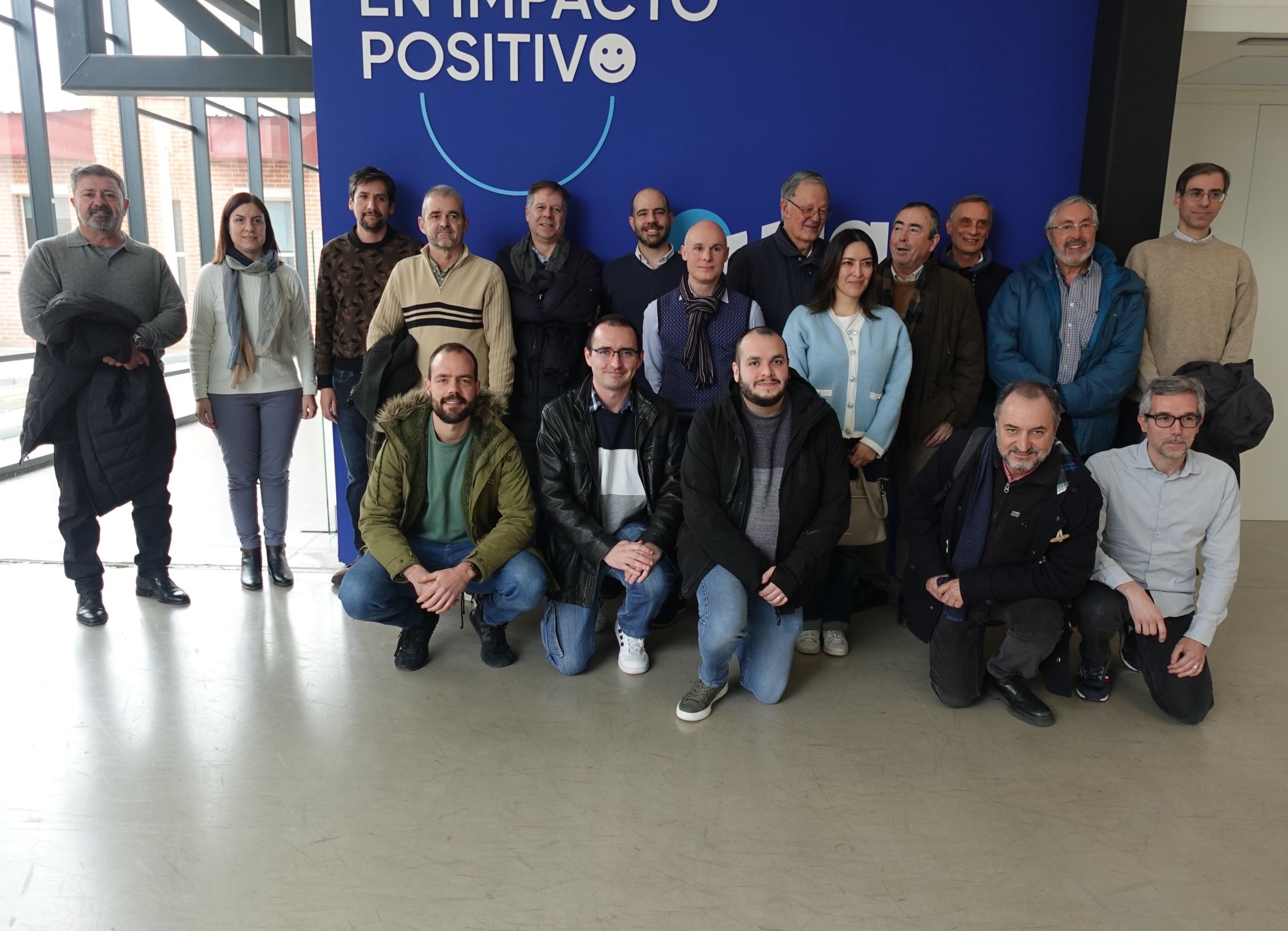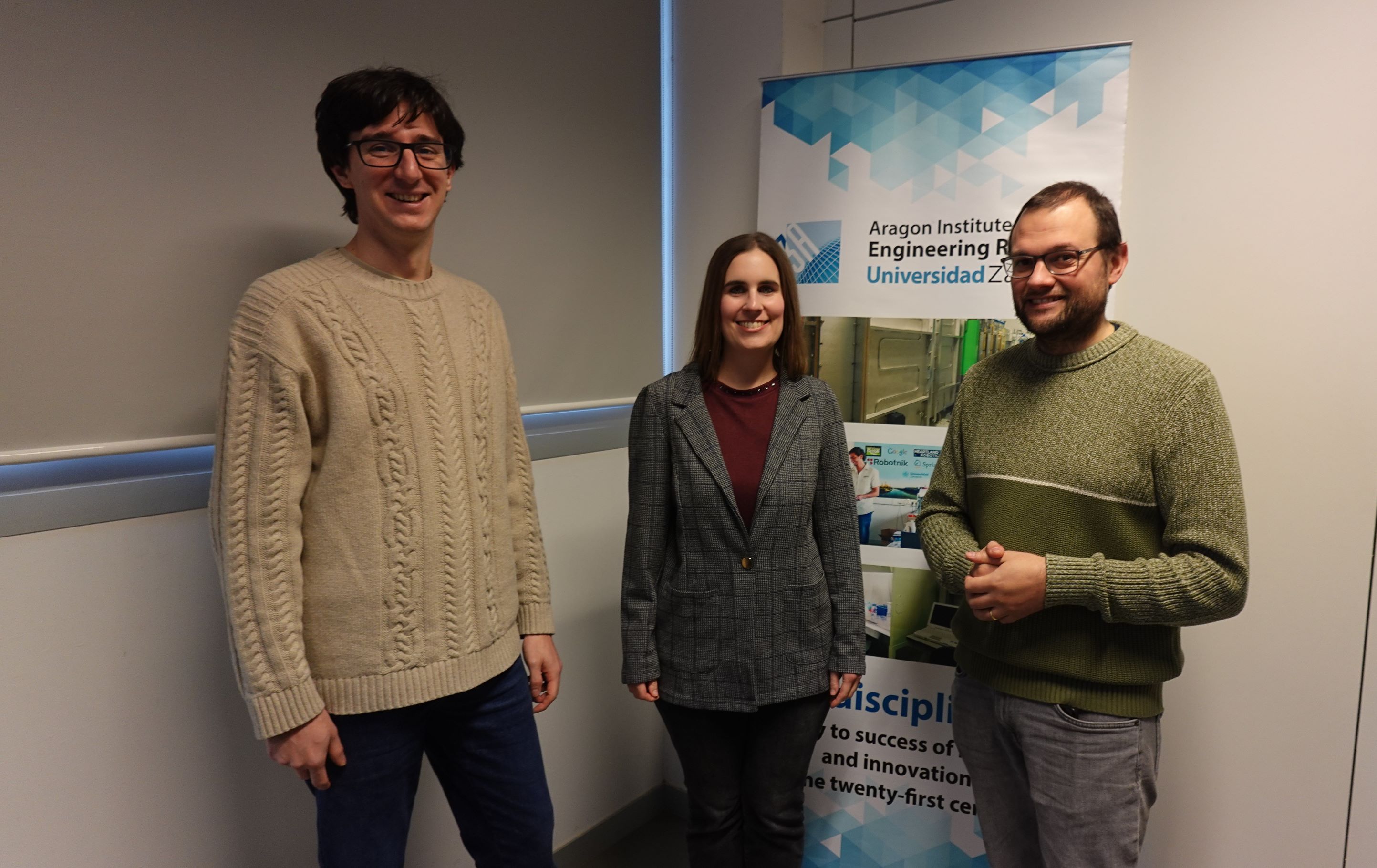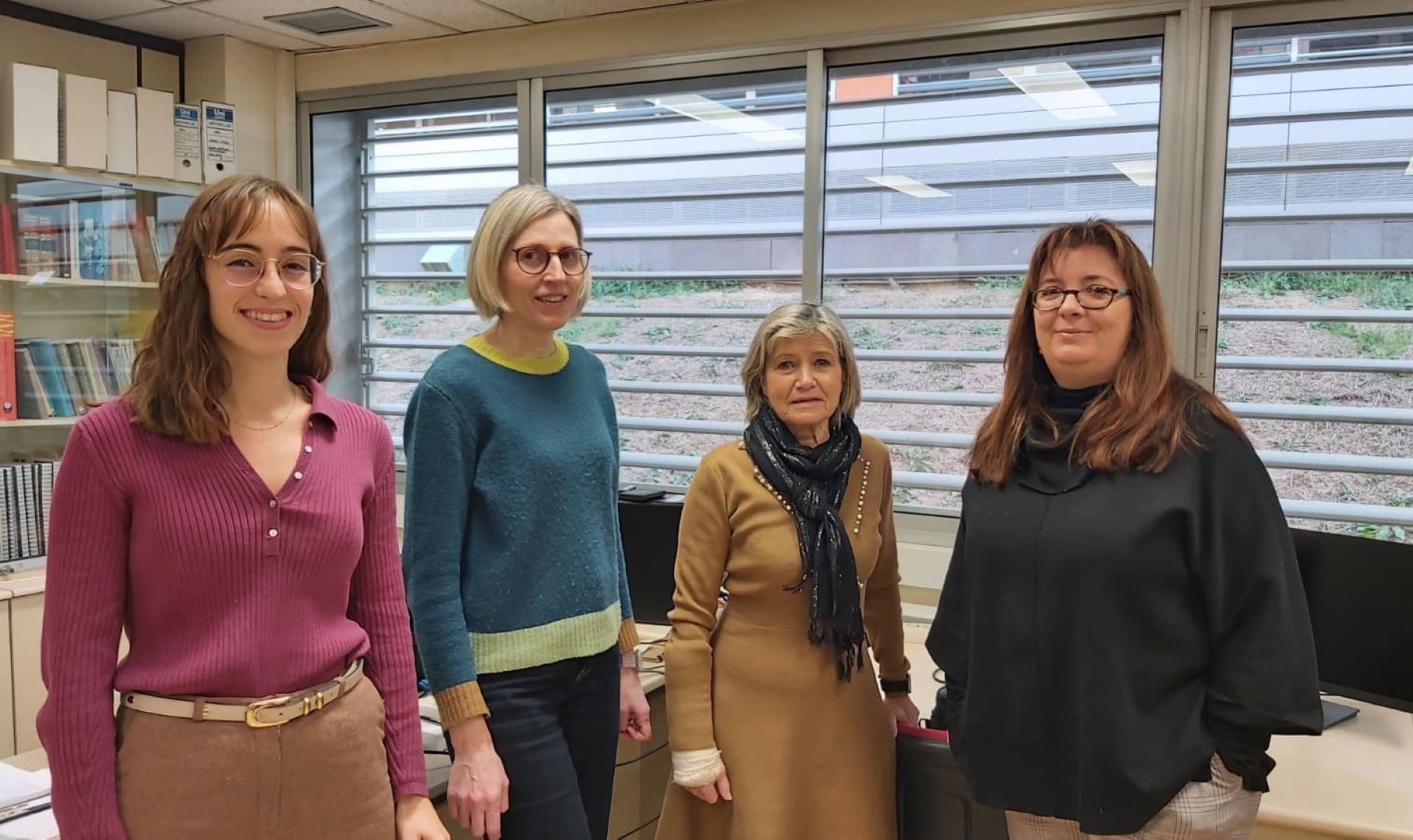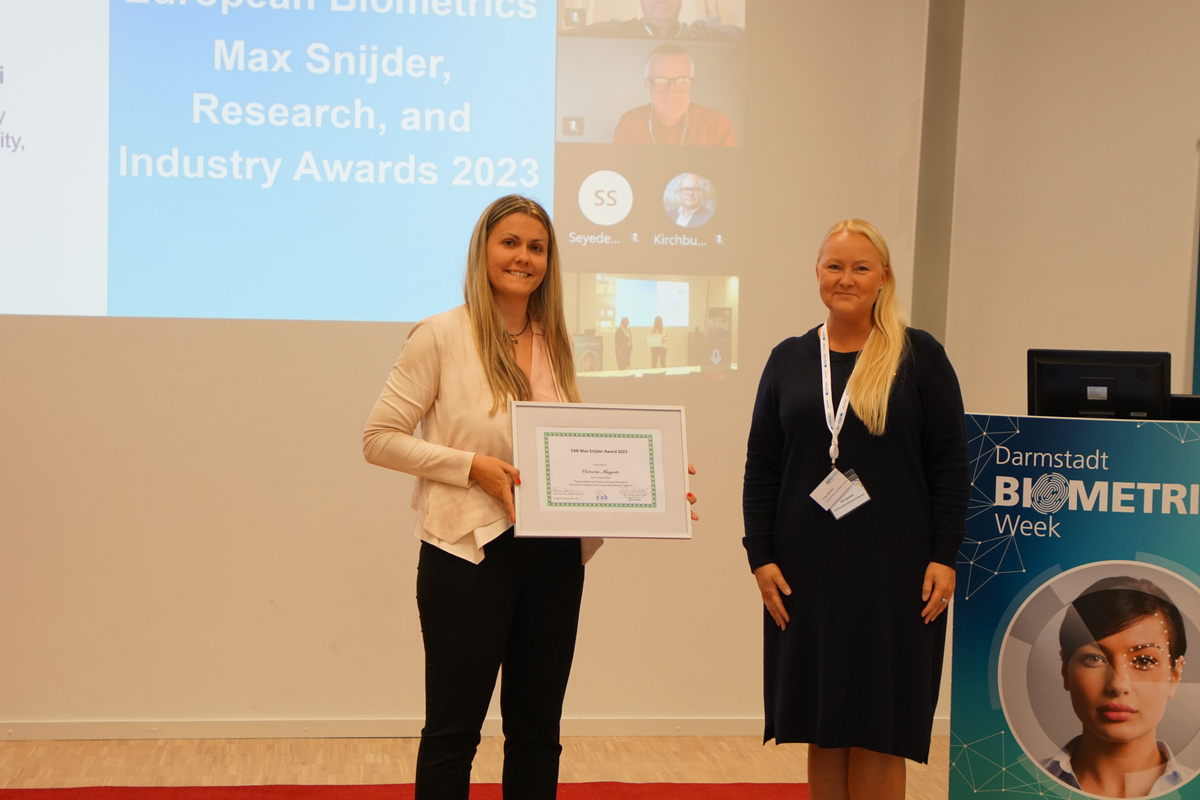
Victoria Mingote, a young researcher at the I3A (Aragon Engineering Research Institute) at the University of Zaragoza, has been recognised by the European Association of Biometrics (EAB) with one of its annual awards, the "Biometric Max Snijder". With these awards, the EAB honours those whose work has made a significant contribution to the field of biometric research in Europe.
Biometrics refers to biological measurements or physical characteristics that can be used to identify individuals. In practice, the best known applications are fingerprinting, facial recognition or retina scans. Today, biometrics is also used to strengthen security systems in computers, telephones or buildings with restricted access, confidential documents and is being incorporated into e-passports around the world.
Victoria Mingote studied at the University of Zaragoza the Bachelor's Degree in Telecommunication Technologies and Services and the Master's Degree in Telecommunication Engineering. Her work, now awarded by the European Biometrics Association, was carried out during her PhD at the ViVoLab research group, specialised in speech, language and machine learning technologies. His doctoral thesis focused on facial and speaker biometric systems, the development of systems for verifying people based on their physical traits, which are unique and non-transferable like their face or voice.
Last year, this young researcher received the prize for the best doctoral thesis at the IberSpeech-2022 conference, which brings together research groups in speech and language technologies. At the same forum, she also won the prize awarded by the Thematic Network of Speech Technologies (RTTH) for the best article published in the IEEE/ACM Transactions on Audio, Speech and Language.
Victoria Mingote has participated, for the second consecutive year, in a workshop related to the European project ESPERANTO, this year working on a project of diarisation of speakers (determining the interventions of the different voices without any information other than the audio itself). "This is the line I will continue working on now, which is also linked to the project that the ViVoLab group has with the Ministry of Science and Innovation".
Among his plans, "I would like to continue a work I had already started to extend this task of diarisation and assignment of broadcasters' identities along the lines of audiovisual content. The expansion of the use of technological devices with cameras and microphones has led to the creation of a large amount of audiovisual content that needs to be digitised, also in order to preserve the television archives that already exist".
Link to the website with information about the awards:
“European Biometric Awards”, https://eab.org/award/cfp.html?ts=1695378401061
